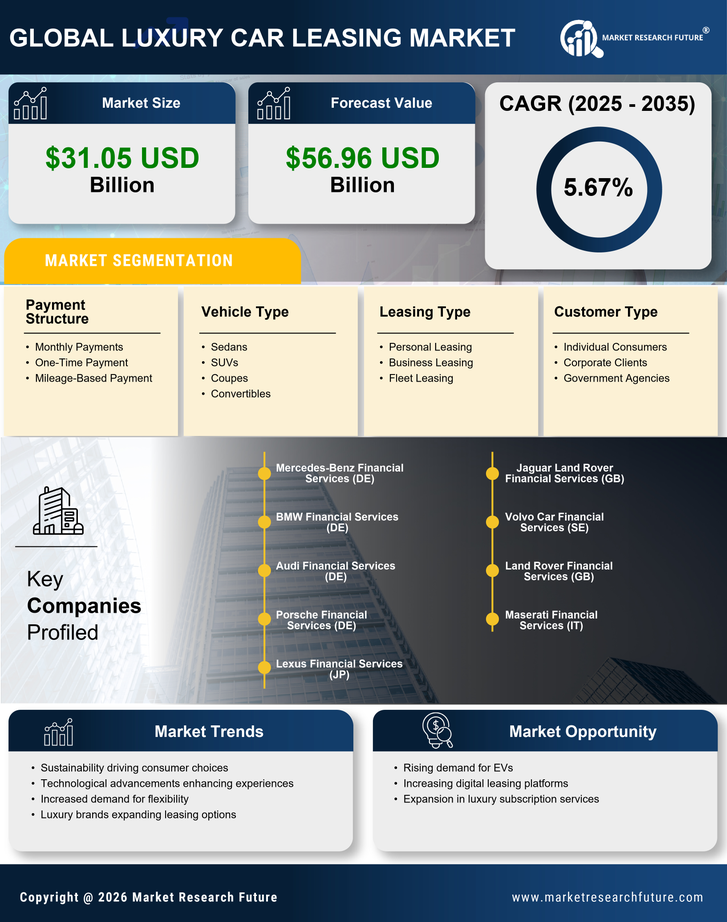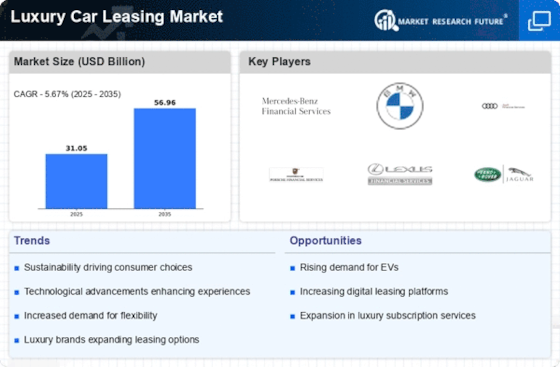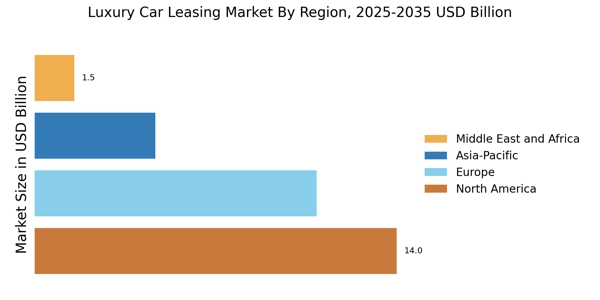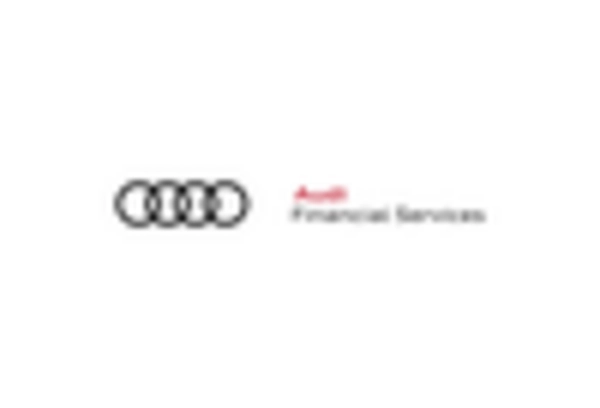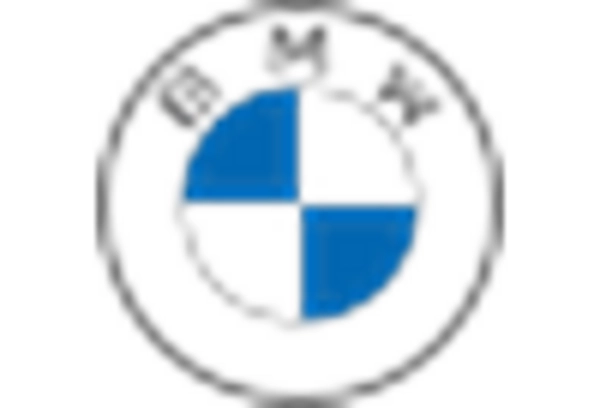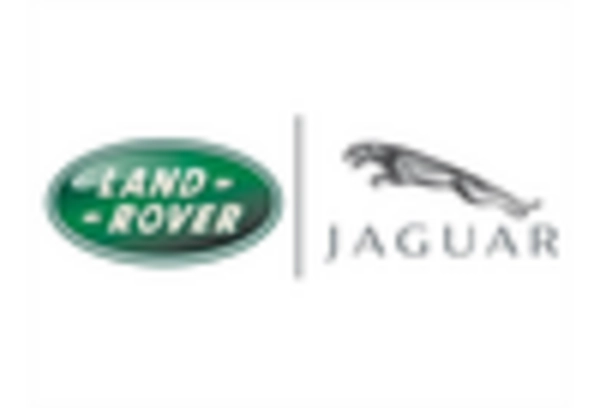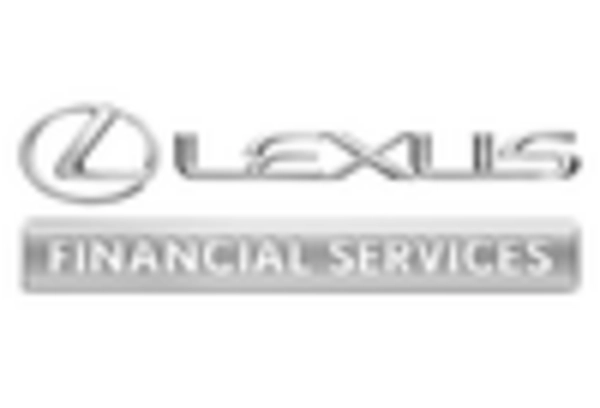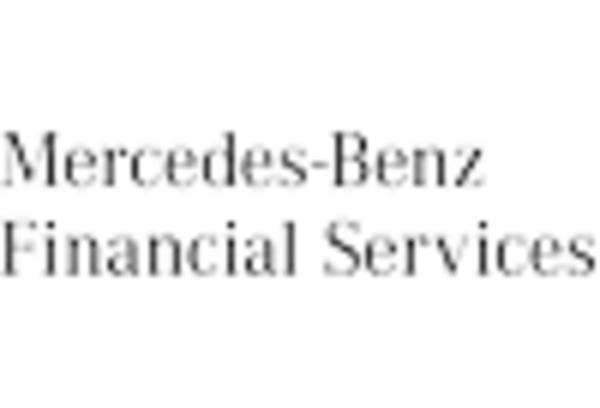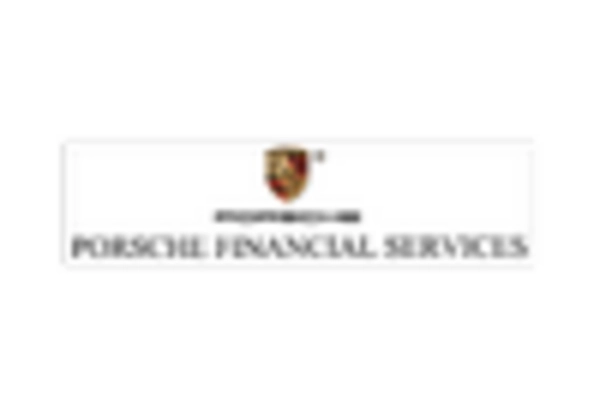Urbanization Trends
Urbanization trends are significantly impacting the Luxury Car Leasing Market. As more individuals migrate to urban areas, the demand for luxury vehicles that offer convenience and status is on the rise. Urban dwellers often prefer leasing over purchasing due to space constraints and the desire for flexibility. The trend towards urban living has led to an increase in luxury car leasing, with many consumers opting for vehicles that complement their lifestyle. Recent statistics suggest that urban areas are witnessing a higher concentration of luxury car leases, indicating a shift in consumer behavior. This urban-centric demand is likely to continue shaping the Luxury Car Leasing Market in the coming years.
Environmental Awareness
Environmental awareness is becoming a pivotal factor in the Luxury Car Leasing Market. As consumers grow more conscious of their carbon footprints, there is a noticeable shift towards eco-friendly vehicles, including hybrids and electric cars. Leasing provides an attractive option for those looking to drive sustainable vehicles without the long-term commitment of ownership. Recent market data indicates that the demand for eco-friendly luxury car leases is on the rise, reflecting a broader trend towards sustainability in consumer choices. This heightened awareness is likely to continue influencing the Luxury Car Leasing Market, as companies respond by expanding their offerings to include more environmentally friendly options.
Rising Disposable Incomes
The Luxury Car Leasing Market appears to be positively influenced by the increasing disposable incomes of consumers. As individuals experience growth in their earnings, they are more inclined to indulge in luxury goods, including high-end vehicles. This trend is particularly evident in emerging markets, where a burgeoning middle class is eager to access premium brands without the financial burden of outright purchases. According to recent data, the luxury car leasing segment has seen a notable uptick, with a projected growth rate of approximately 8% annually. This suggests that as financial flexibility increases, more consumers are likely to opt for leasing as a viable alternative, thereby driving demand within the Luxury Car Leasing Market.
Technological Advancements
Technological advancements play a crucial role in shaping the Luxury Car Leasing Market. Innovations in automotive technology, such as electric vehicles and advanced driver-assistance systems, are attracting consumers who seek both luxury and sustainability. The integration of smart features enhances the driving experience, making leasing more appealing. Data indicates that electric vehicle leasing has surged, with a significant percentage of new leases attributed to electric models. This shift not only reflects changing consumer preferences but also aligns with broader environmental goals. As technology continues to evolve, it is likely that the Luxury Car Leasing Market will adapt, offering more sophisticated options that cater to tech-savvy consumers.
Changing Consumer Preferences
Changing consumer preferences are a driving force in the Luxury Car Leasing Market. Today's consumers are increasingly valuing experiences over ownership, leading to a rise in leasing as a preferred option. This shift is particularly pronounced among younger demographics, who prioritize access to luxury vehicles without the long-term commitment of ownership. Data shows that leasing offers a more flexible and cost-effective solution, appealing to those who frequently change vehicles. As preferences evolve, the Luxury Car Leasing Market is likely to adapt, providing tailored leasing options that resonate with the desires of modern consumers.
